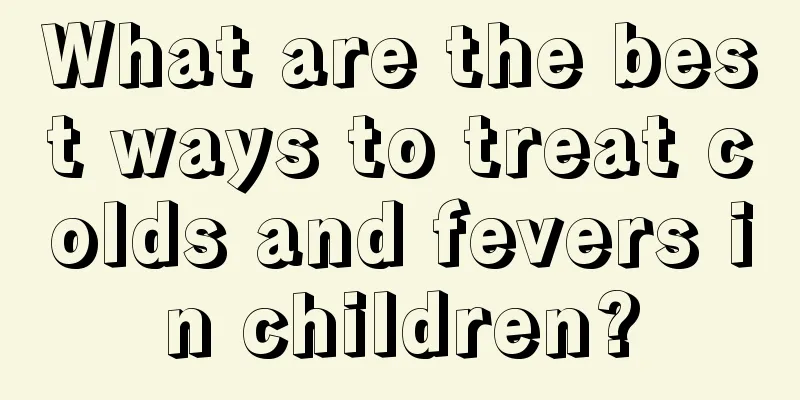What are the symptoms and causes of bacterial infection in the baby's intestines?

|
New mothers, when your baby has diarrhea, parents must pay attention to his mental state. When your child has 5 to 6 loose bowel movements a day, but has a good appetite, good spirits, and normal body temperature, you can have good reason to classify it as physiological diarrhea and no treatment is needed. If it is abnormal, you should consider whether the baby has intestinal infection. The editor has looked up a lot of information for new mothers. Let’s follow the editor to learn more about it. I hope parents will observe their children’s stools more often and learn some preliminary methods of judgment. (1) Generally speaking, stool that smells like rotten eggs is usually caused by protein indigestion. (2) When too much sugar is added to milk, the stool will be foamy and have a sour and smelly smell. (3) If the mother drinks too much oily soup and there is too much fat in the milk, the child's stool will be grayish white and foamy, and laboratory tests will often show that the stool contains fat globules. (4) When the diaper is changed too slowly or the child is not wrapped properly, causing the abdomen to get cold, intestinal motility increases, and excessive bile enters the stool, resulting in the stool turning green. In case of viral or bacterial infection, watery stools (similar to egg drop soup, with water and stool separated) or bloody stools are common. Generally, if you see blood or pus in your child's stool, you must go to the hospital and ask the doctor for guidance on antibiotic treatment. In other cases, enhanced care will be sufficient. In addition, there are many other reasons, let’s learn more about them with the editor. 1. Physical factors. This disease mainly occurs in infants and young children. Its internal causes are as follows: ① The gastrointestinal tract of infants is not fully developed. ② During infancy, the nervous, endocrine, circulatory systems, liver and kidney functions are immature and the regulatory functions are poor. ③The baby’s immune function is also not perfect. ④ The distribution of body fluids in infants is different from that in adults. Extracellular fluid accounts for a higher proportion, and the water metabolism is vigorous and the regulatory function is poor, making it easier for infants to develop fluid and electrolyte disorders. Infectious factors are divided into intra-digestive tract infection and extra-digestive tract infection, with the former being the main type. (1) Infection in the digestive tract: Pathogenic microorganisms can enter the digestive tract of children through contaminated food or water, and are therefore more likely to occur in artificially fed children. (2) Extra-digestive tract infection: Infection of organs and tissues outside the digestive tract can also cause diarrhea, which is common in otitis media, pharyngitis, pneumonia, urinary tract infection and skin infection. (3) Intestinal flora disturbance caused by the abuse of antibiotics: Long-term and large-scale use of broad-spectrum antibiotics such as chloramphenicol, kanamycin, gentamicin, ampicillin, and various cephalosporins, especially when two or more are used in combination, can directly stimulate the intestines or stimulate the autonomic nerves to cause increased intestinal motility, reduced glucose absorption, and reduced disaccharidase activity, resulting in diarrhea. More seriously, it can cause intestinal flora disturbance. The editor will give you some more prevention suggestions. To prevent bacterial diarrhea, you should pay attention to strictly disinfecting bottles, milk pans, etc. used to feed babies. Generally, boiling bottles and nipples in water for 30 minutes can kill all bacteria. Boil milk before drinking. It is forbidden to feed young children food and drinks that have been kept in the refrigerator for a long time and unclean food. Avoid long-term and large-scale use of broad-spectrum antibiotics. |
<<: How to correct stuttering in children?
>>: What are the benefits of children learning to swim?
Recommend
Is it serious if a child has a nose bleed? How to treat it?
In the summer, people always have nose bleeding d...
Is it normal for a three-month-old baby to have teeth?
The physical health of the baby is one of the thi...
Fever after hand, foot and mouth vaccine
In this season, many children have contracted han...
How to prevent motion sickness in children
With the continuous improvement of people's s...
What is the cause of the red pimples on the child's body?
If a child has red bumps on his body, parents nee...
What should I do if my baby doesn’t sleep well?
I believe that many young mothers have this probl...
50-day-old baby is restless when sleeping. Is it calcium deficiency?
There are many cases of 50-day-old babies sleepin...
Height standard for babies between two and three years old
I believe that the baby's physical health is ...
What are some ways to improve memory?
What methods can improve memory is a question tha...
Nursing methods for children with myocardial damage
After many children are born, it is difficult for...
Child has stomachache and wants to vomit
Many parents will find that their children have s...
What are the symptoms of zinc deficiency in children?
The symptoms of zinc deficiency in children are a...
Causes of peeling toes in children
Many children have peeling toes. This situation i...
How many bowel movements are normal for a four-month-old baby?
Many babies are the apple of their parents' e...
What causes cross-eyes in children?
Children's crossed eyes are what we usually c...









